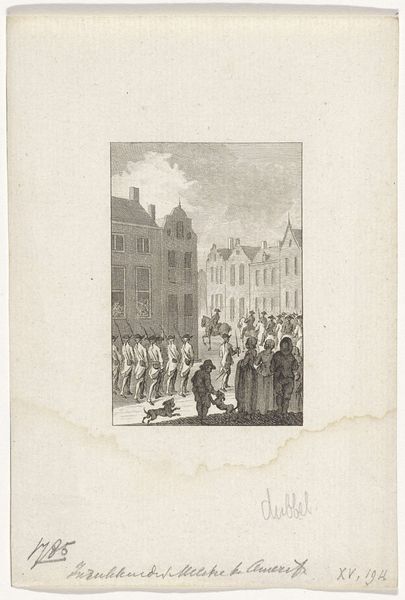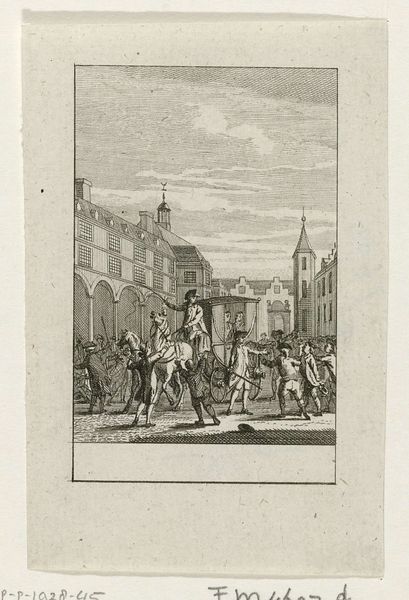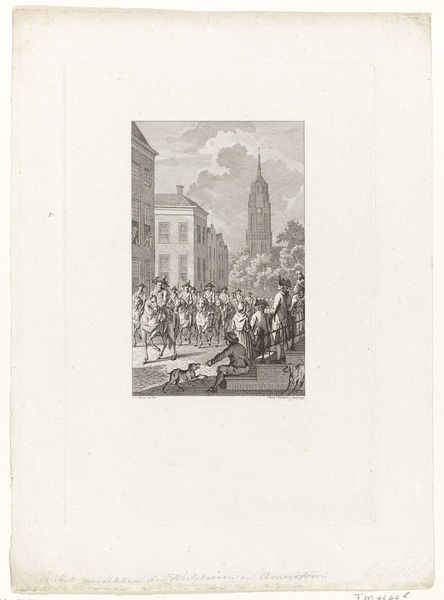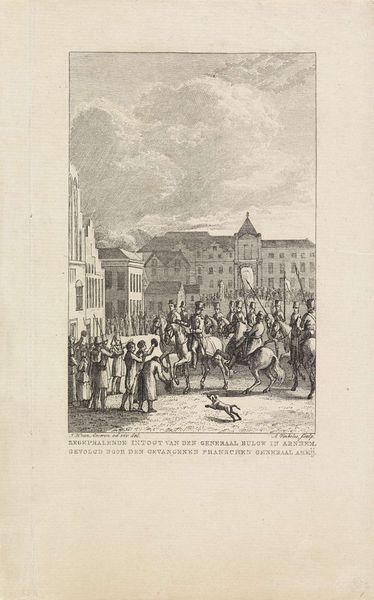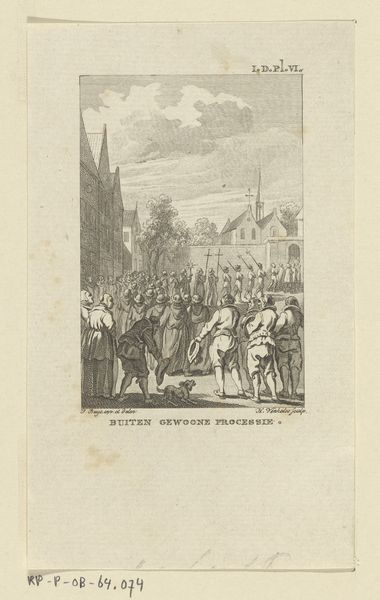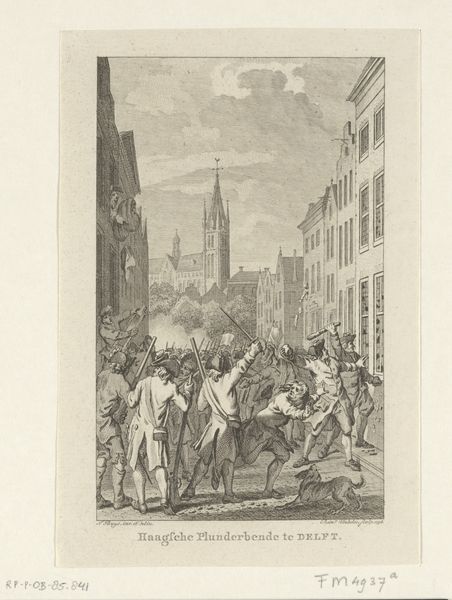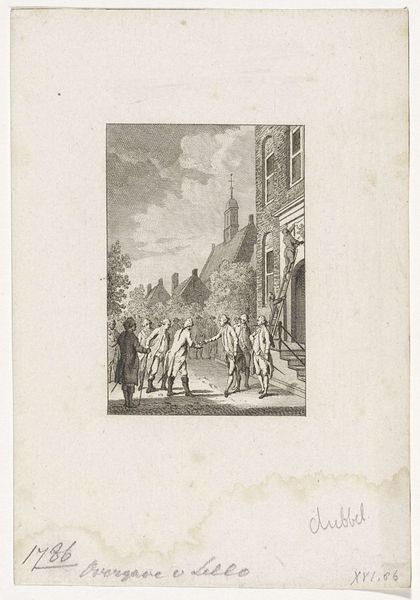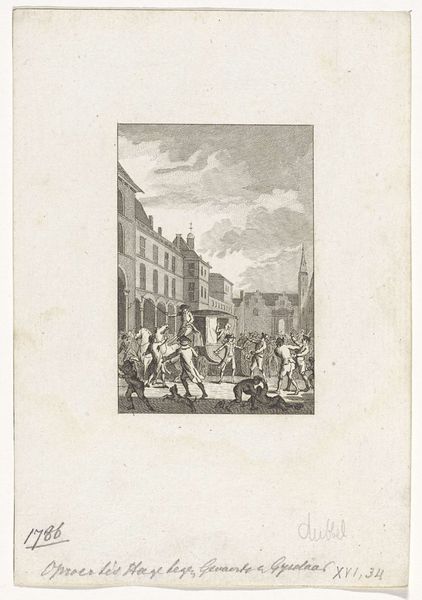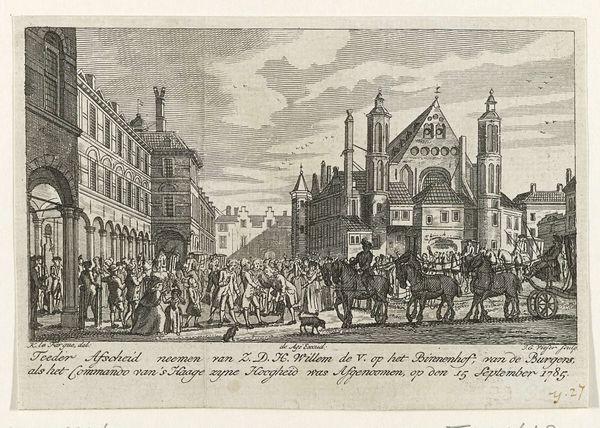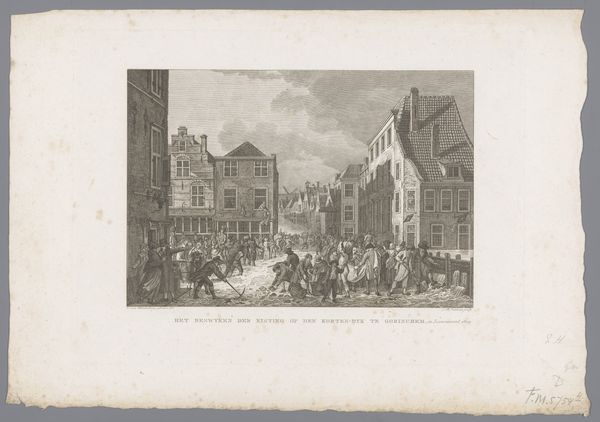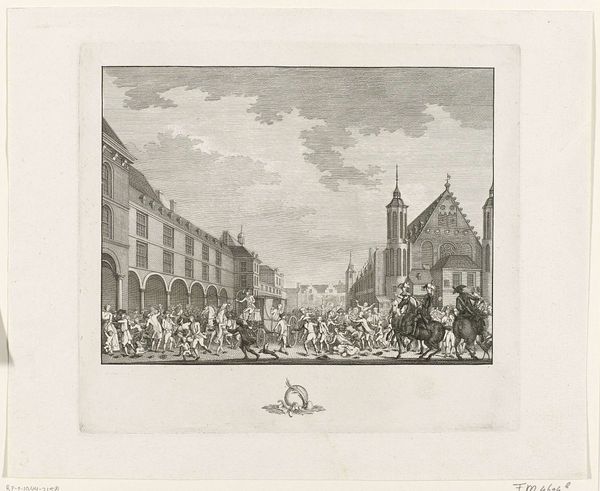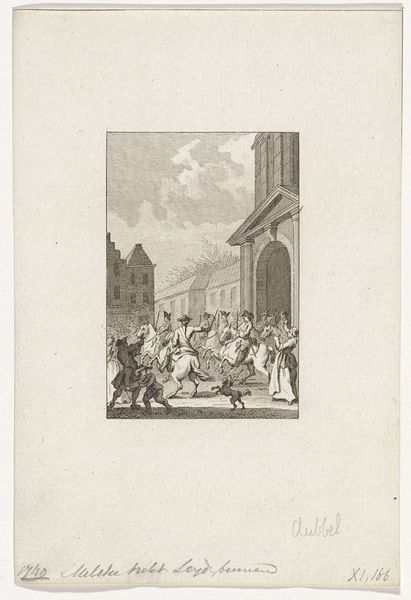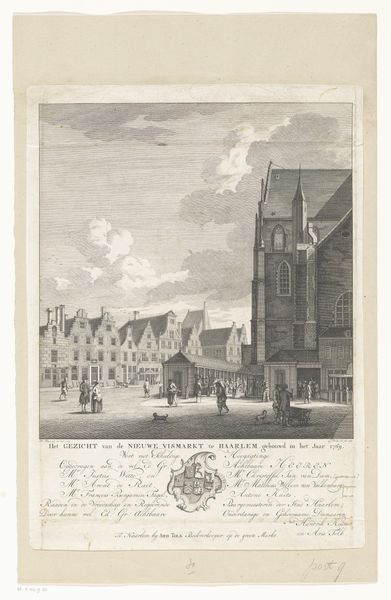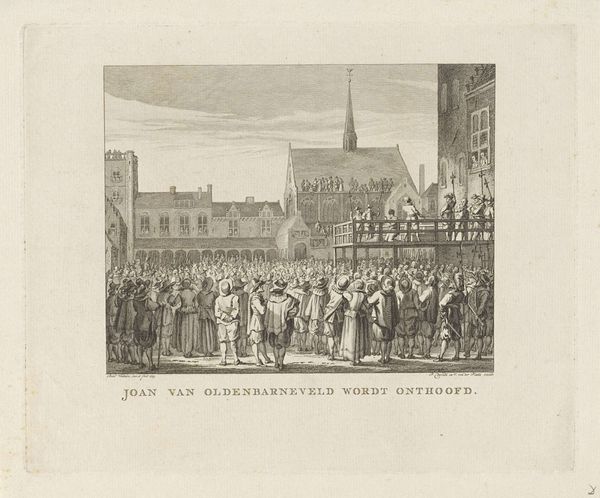
Dimensions: height 160 mm, width 100 mm
Copyright: Rijks Museum: Open Domain
Curator: This is "Remotie te Delft, 1787", a drawing from somewhere between 1783 and 1795 by Reinier Vinkeles. The work is held at the Rijksmuseum and it really encapsulates that Dutch Golden Age feel, doesn't it? Editor: My first impression? It's so meticulously rendered! All those tiny figures… but there’s also a sense of tension, of disruption in the air, like a stage just before a pivotal moment. Curator: It’s an engraving, so the line work is everything here. And it depicts exactly what the title suggests, the Remotie in Delft. That’s a moment of political upheaval, when city council members were ousted. It gives us such insight into Dutch society during this period, doesn’t it? Editor: Absolutely, and it makes you wonder about the people being depicted. The piece almost feels like a freeze-frame, capturing the anxiety as these men lose power. What happened after this snapshot, one wonders? How many other individuals felt similarly exposed at the time? Curator: I love how Vinkeles positions us. It is almost as though we are participants or, more specifically, witnesses to the moment it unfolds. From the Baroque architectural details of the building to the expressions of the crowd, every stroke tells a part of the story. Editor: Right, you can see the weight of societal power in those formal Baroque lines—a power now threatened! It prompts us to question how power shifts and is it only ever an exchange from one social group to the next? How have these shifts impacted cities and individual people within the Dutch Golden Age then, now? Curator: What resonates most profoundly for me, is its timeless quality. We are still fighting similar battles today! I suppose that art allows the transmission of important truths. It opens doors for future people, enabling connections to something beyond themselves. Editor: And art helps us to ask meaningful questions about power and the collective narratives of social injustice and triumph in history and the present. Thanks for highlighting that— it leaves me contemplating the legacy of societal transformation for sure.
Comments
No comments
Be the first to comment and join the conversation on the ultimate creative platform.
